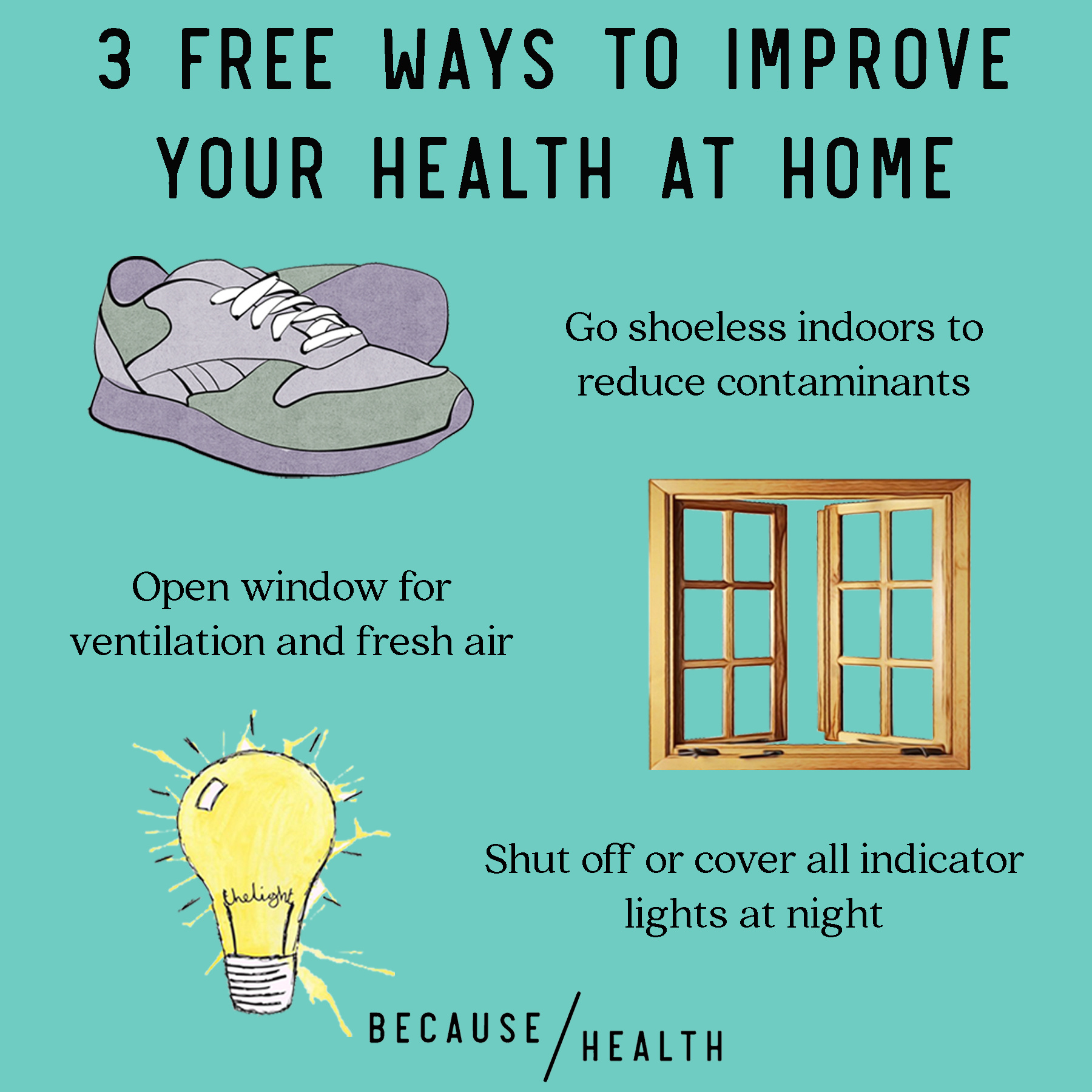Easy and Free Ways to Improve Your Health at Home
Who says staying healthy has to be expensive?!
The COVID-19 shelter in place has been tough for our emotions and our budget. With layoffs and furloughs, we’ve had to make our money go further than ever before. But how do you keep good environmental health practices when money is tight? It seems like a lot of ways to improve health around the home include purchasing something new. That’s why we’re highlighting three things you can do that are good for your health but that are totally free! Each tip is easy to implement, will benefit your health now, and helps prevent future diseases. Try some out today!

Tip 1: Open your windows. Letting in fresh air can do wonders for your health! Surprisingly, indoor air quality can be worse than outdoor air quality (1). And since we’re spending so much time indoors, the quality of our air matters more than ever! There are many everyday items in the home that can negatively impact your indoor air quality. Home furnishings, personal care products, pesticides, and household cleaners can all give off harmful volatile organic compounds (VOCs). Stovetops and kitchen appliances can give off particulate matter (PM) as well as VOCs while they’re in use (1). VOCs and PM can cause headaches, trigger asthma, and even cause cancer after long-term exposure (2). Opening your windows can help circulate air and help remove any harmful pollutants from your indoor air.
Tip 2: Leave shoes at the door. Wearing outdoor shoes around the house may seem innocent enough, but shoes can actually track residue around your house. Scientists have found that a big source of lead and pesticide residues in the home come from wearing shoes indoors. These harmful chemicals and other gross debris can later end up in household dust, which you or your kids can accidentally ingest (3). Yuck! Taking off your shoes before you walk around indoors is an easy way to limit your exposure to harmful materials.
Tip 3: Turn off lights when you go to sleep. You may be thinking “of course I turn the lights off when I go to sleep!”, but we’re talking about all lights! Even those tiny lights on your electronics. Any source of light, big or small, can impact the quality of your sleep, which impacts your health. Exposure to artificial light at night can suppress melatonin secretion, make it harder to fall asleep, and disturb your circadian rhythm. There is even research showing that prolonged nighttime exposure may contribute to breast cancer risk, and negatively impact psychological, cardiovascular, and metabolic function (4). Try turning off all electronics in your room, including power strips, before you get into bed. If you can’t turn them off, you can use some black electrical or duct tape to cover the light.
- https://www.epa.gov/report-environment/indoor-air-quality
- https://www.health.state.mn.us/divs/eh/indoorair/voc/
- U.S. EPA. Update for Chapter 5 of the Exposure Factors Handbook: Soil and Dust Ingestion. US EPA Office of Research and Development, Washington, DC, EPA/600/R-17/384F, 2017
- https://www.tandfonline.com/doi/abs/10.3109/07420528.2015.1073158
